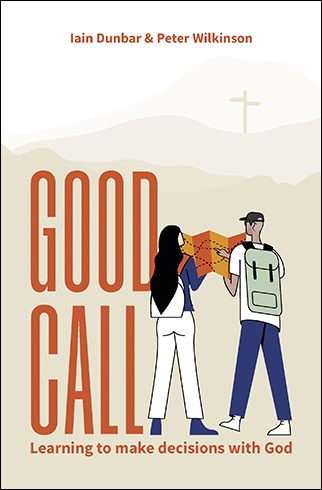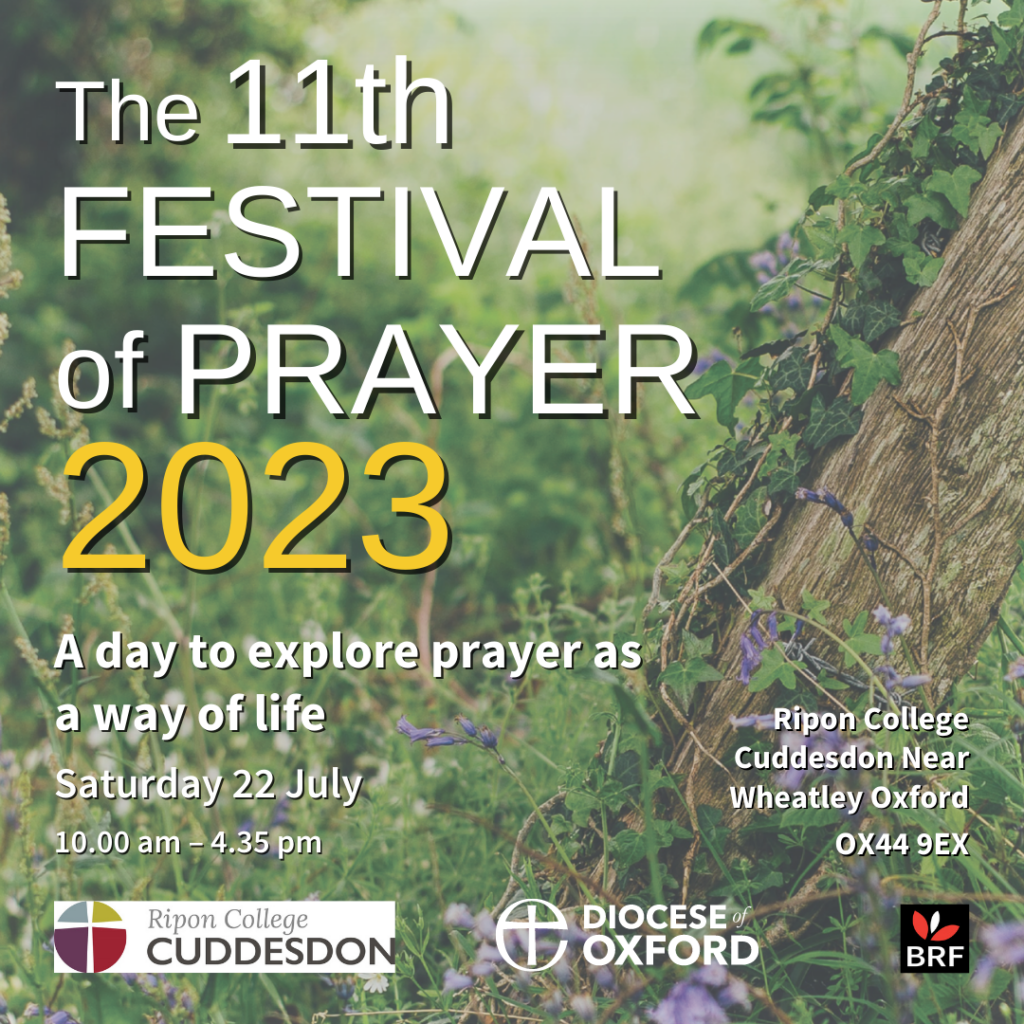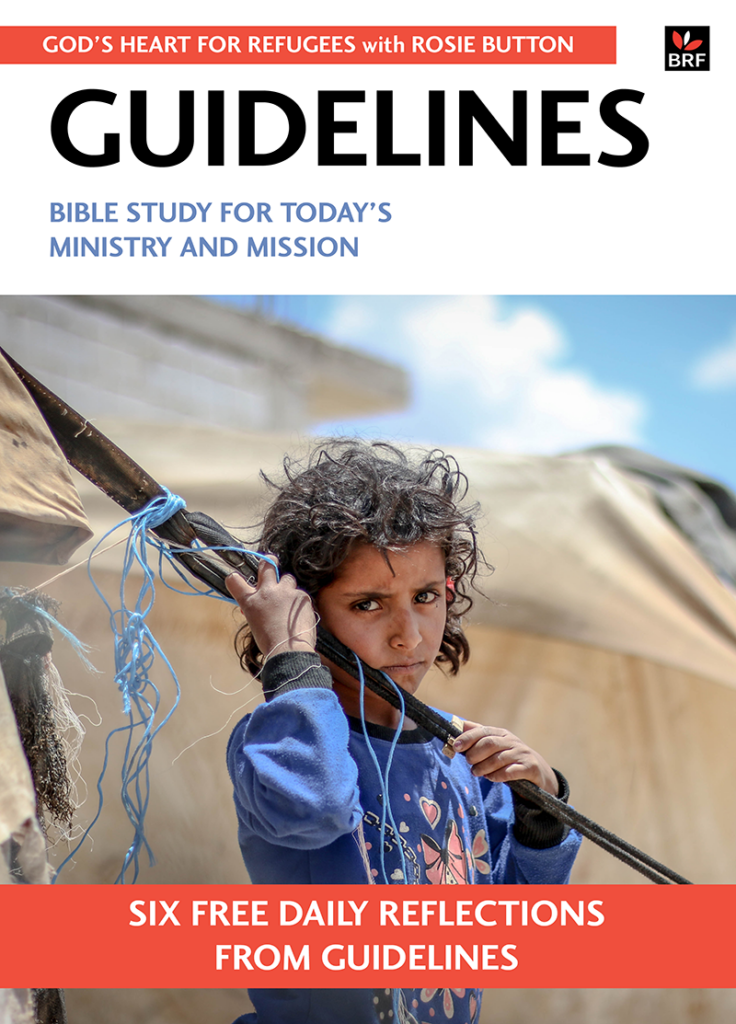Our new title for June is Good Call: learning to make decisions with God. In the first of two articles by the authors, Iain Dunbar shares an example of everyday discernment and decision-making from his own experience.
18 June 2023
A decision to do something useful
Soon after finishing the manuscript of Good Call, a book about learning to make decisions with God, I was due to go to Bath, with my wife Dawn, to look after two grandchildren while their parents were away.
There was a lot to think about: a menu; the school run; homework; games to play; an outing to somewhere interesting. Then Dawn asked one of those ‘On the way to Bath, could we just…’ questions. My reaction, due to temporary brain overload, was ‘I’m not sure we should just…’ but the detour she had in mind was relatively minor and in a good cause: to deliver items to the warehouse operated by an aid organisation.
Most projects this organisation undertakes, aimed at addressing the needs of persecuted Christian groups all over the world, involve financial assistance to teams on the ground, who provide local solutions to pressing needs such as shelter and basic provisions for displaced persons or relief after a natural disaster. Sometimes, however, it’s cheaper and easier to gather materials in the UK and then ship them overseas, if for example supply lines and communications in the destination country are disrupted.
Time to consider
We were to deliver foodstuffs and other donations to be stored in the warehouse and then packaged for shipment. I’m slowly learning to do inconvenient things willingly, rather than reluctantly, so I acquiesced; in other words, I gave in with as much grace as possible.
It was a straightforward drop-off on a Thursday morning but, as we left, one member of staff asked: ‘Are you coming to the open afternoon on Saturday?’ My natural response would have been ‘No’, but I knew we’d be returning home on Saturday afternoon. Arriving for the main gathering at 2.00 pm might be possible. We said we’d consider it.
‘I’m slowly learning to do inconvenient things willingly, rather than reluctantly.’
For the next two days it nagged at me – annoyingly, persistently – but I kept it at bay because I wasn’t enthusiastic. Saturday came and we resolved, traffic permitting, to go to the meeting – it couldn’t do any harm, we had time and, who knows, we might learn something. By some fluke, after a hugely hectic morning, we arrived at the warehouse at exactly 2.00 pm. Very little was communicated over the next two hours that I didn’t already know but one thing stuck in my mind – a request for more people to consider volunteering.
Called to volunteer? How to decide?
I pushed it away for a week, but then checked the organisation’s website to see what it said about volunteering. I found some information and an enquiry form but still had questions. So, I filled out the form and pressed the ‘submit’ button, expecting a significant period of time to elapse before any response arrived or, alternatively, before no response arrived.
As it turned out, I got an answer in less than 48 hours, telling me what tasks volunteers normally undertake, what times of the week are open to volunteering and asking when I’d like to go over and ‘be introduced to the gang’.
This was escalating faster than expected. A vague possibility, which hadn’t even been on the radar ten days previously, of doing something useful at a place I found awkward to get to had suddenly become a decision that I needed to make.
My thinking shifted up a gear or two – is this the right thing to do or not? What are the consequences, in terms of time, effort and resources? Do I know enough about the organisation, the people who run it, the way they do business, the outcomes they are striving for? Will it be just like working in a supermarket, stacking shelves, or can I offer anything in addition to my time and an extra pair of hands?
I thought back over the past two weeks. It was clear that a chain of events had led to this possibility and equally clear that at no point had it felt wrong or inappropriate to proceed to the next link in the chain. Any reticence was due to me being slightly outside my comfort zone, not to feeling disturbed in my spirit.
‘I thought back over the past two weeks. It was clear that a chain of events had led to this possibility.’
I was still standing back because I naturally take time to evaluate opportunities, especially where I’ll be required to work and/or socialise with a group of people I don’t know. I sometimes think of myself as ‘relationally challenged’!
Keep praying
So, Dawn and I prayed. Whenever we pray about a situation we expect God to give us understanding and to direct us. If that understanding doesn’t come straight away, we keep on praying until it does.
This time, although not aware of alarm bells going off, we knew the evidence was still largely circumstantial and we needed confidence and peace either to go ahead or to say no. Having prayed, we both felt it right for me to go once, meet the people, work a shift and, keeping spiritual eyes and ears open, trust that I would be shown the way forward.
‘We needed confidence and peace either to go ahead or to say no.’
I went the following Tuesday and, within a few hours, began to appreciate the scale of the operation and some of the challenges to be overcome if they were to achieve their aims. I returned home feeling fired up but still asking questions. I went back on Thursday, met and worked with some experienced volunteers and had a couple of significant conversations with members of staff.
This was a relatively new operation, run by people who were both prayerful and enthusiastic but who hadn’t done this sort of thing before. However, decades of experience in both business and the church had given me and others of the volunteers a level of understanding that they were lacking. We knew what processes and procedures needed to be put into place if errors were to be eliminated, key information recorded, and risks to shipments minimised. By the end of that second day I had decided to volunteer for a season.
Now, more than six months on, progress has been made but challenges remain. We all – staff and volunteers – are asking God to show us the way forward. I for one am sure he will do that because, to quote Francis Schaeffer (paraphrasing Psalm 50): ‘He is there and he is not silent.’
‘Learning to make decisions with God means listening to and reaching agreement with him at every turn.’
Learning to make decisions with God means listening to and reaching agreement with him at every turn.

Iain Dunbar’s background is in business development and operational management for UK, US and Australian companies. He has extensive experience of recruitment, career development, team building, coaching of individuals and leadership groups, and church leadership and teaching in Independent Evangelical, Baptist and Anglican contexts.

Everybody makes decisions – all the time. Iain Dunbar and Peter Wilkinson share their own decision-making history (even the dodgy stuff) and encourage you to look honestly at yours. Borrowing from the world of coaching, they help you evaluate your decision-making to date and develop new and better habits and practices with God at the centre.

Festival of Prayer 2023
Join us for the Festival of Prayer 2023: Prayer as a way of life with keynote speaker David Runcorn. Saturday 22 July, 10.00 am–4.35 pm, at Ripon College, Cuddesdon.
The festival is an opportunity to invest in your relationship with God, in the company of deeply thoughtful and experienced speakers. There will be the opportunity to attend up to three workshops across two venues within Cuddesdon: Ripon College and the parish church, which are a few hundred yards apart.

Refugee Week 19–25 June
Tomorrow marks the beginning of Refugee Week. Rosie Button has written a compelling series of biblical reflections for our Guidelines Bible study notes exploring God’s heart for refugees, which we’ve made available free.
We’ve now also added Rosie’s specially written group discussion material.
